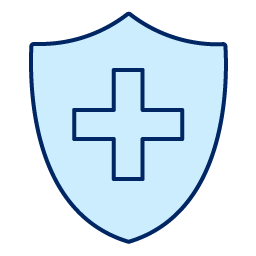Priority 2: Screening and early detection of cancers

Screen for and diagnose or detect cancers accurately, in a coordinated manner and, where possible, at an earlier stage.
Our actions for the next five years
| # | Action |
|---|---|
|
2.1 |
Engage primary care providers to encourage participation in the national cancer screening programs. |
|
2.2 |
Maximise participation in screening and early detection programs and make NSW a national leader in early detection of cancers. |
|
2.3 |
Promote opportunities for people who are already engaged with the health system to participate in cancer screening, and enable key organisations to promote cancer screening to focus populations. |
|
2.4 |
Target early detection efforts in communities with the greatest need and the highest potential for improved outcomes. |
|
2.5 |
Continue to support primary care providers to proactively identify and effectively care for people who have, or may have, cancer. |
|
2.6 |
Create and deliver consistent, coordinated and timely pathways to ensure people with cancer are referred appropriately from primary care to treatment and care. |
This is enabled through cancer screening, which means checking the body for signs of cancer before symptoms appear, opportunistic testing (offering screening linked to other occasions of care), risk recognition and symptom awareness.
There are three national screening programs for breast, bowel and cervical cancers. According to the Australian Institute of Health and Welfare (AIHW):7
- people with cancers diagnosed through the National Bowel Cancer Screening Program had a 40% lower risk of dying than those who had not been screened
- women with cancers diagnosed by BreastScreen had a 42% lower risk of dying than women with cancer who had never been screened**
- women with cancers diagnosed through cervical screening had an 87% lower risk of dying than women with cancers who had never had a Cervical Screening Test.
Efforts are needed to increase screening rates and support early detection, with the AIHW analysis showing:7
- six out of 10 eligible people were not participating in the National Bowel Cancer Screening program
- 40% of eligible women were overdue for a screening mammogram
- people from Aboriginal and Torres Strait Islander or culturally and linguistically diverse backgrounds were less likely to participate in bowel, breast and cervical screening
- four out of 10 eligible women were overdue for cervical screening.
“I was very much guided by my GP [general practitioner], who I have a strong and longstanding relationship with, and my specialists. I know there’s a lot of rubbish information out there on the internet, so I’m glad they were able to give me the information that I needed.”
Putting the principles into practice
Examples may include:

For equity of outcomes, continuing to improve access to cancer screening in regional, rural and remote NSW through mobile screening services, for example BreastScreen NSW mobile vans.

For person-centredness, providing easy-to-understand information to all people who may have cancer about next steps, care pathways and support services available.

For collaboration, working across government and community sectors to align screening and early detection strategies and messaging, particularly for focus populations.
“I received my bowel cancer screening kit in the mail and put it away in my bedroom, thinking I would do it some other time. My husband encouraged me to just get it over with. After a positive result, I had a colonoscopy and found out I had cancer. It’s worthwhile doing the kit straight away, that’s what I tell everyone now.”

What success looks like
For the health system
High-quality cancer screening services are available, accessible and acceptable to all eligible people.
People at risk of cancer or with suspected cancer can access diagnostic services, so that a diagnosis can be confirmed as early as possible.
For people at risk of or affected by cancer, their families, and carers
I have any changes in my general health checked by my GP.
I have access to cancer screening programs.
Services and community-based organisations help to direct me to cancer screening programs and provide advice if I need it.
My GP or primary care provider knows the early signs and symptoms of potential cancer and will send me for testing if it is needed.
If I have cancer, it is diagnosed early so I can have the best possible outcomes
** Note that while data presented in this section specifically refers to cisgender women (i.e. women whose sense of personal identity and gender corresponds with their birth sex), not everyone with a cervix and/or breasts is a woman, and cervical and breast cancer screening is important for everyone with a cervix and/or breasts including transgender and non-binary people.
